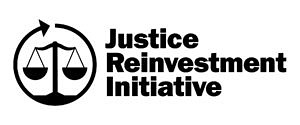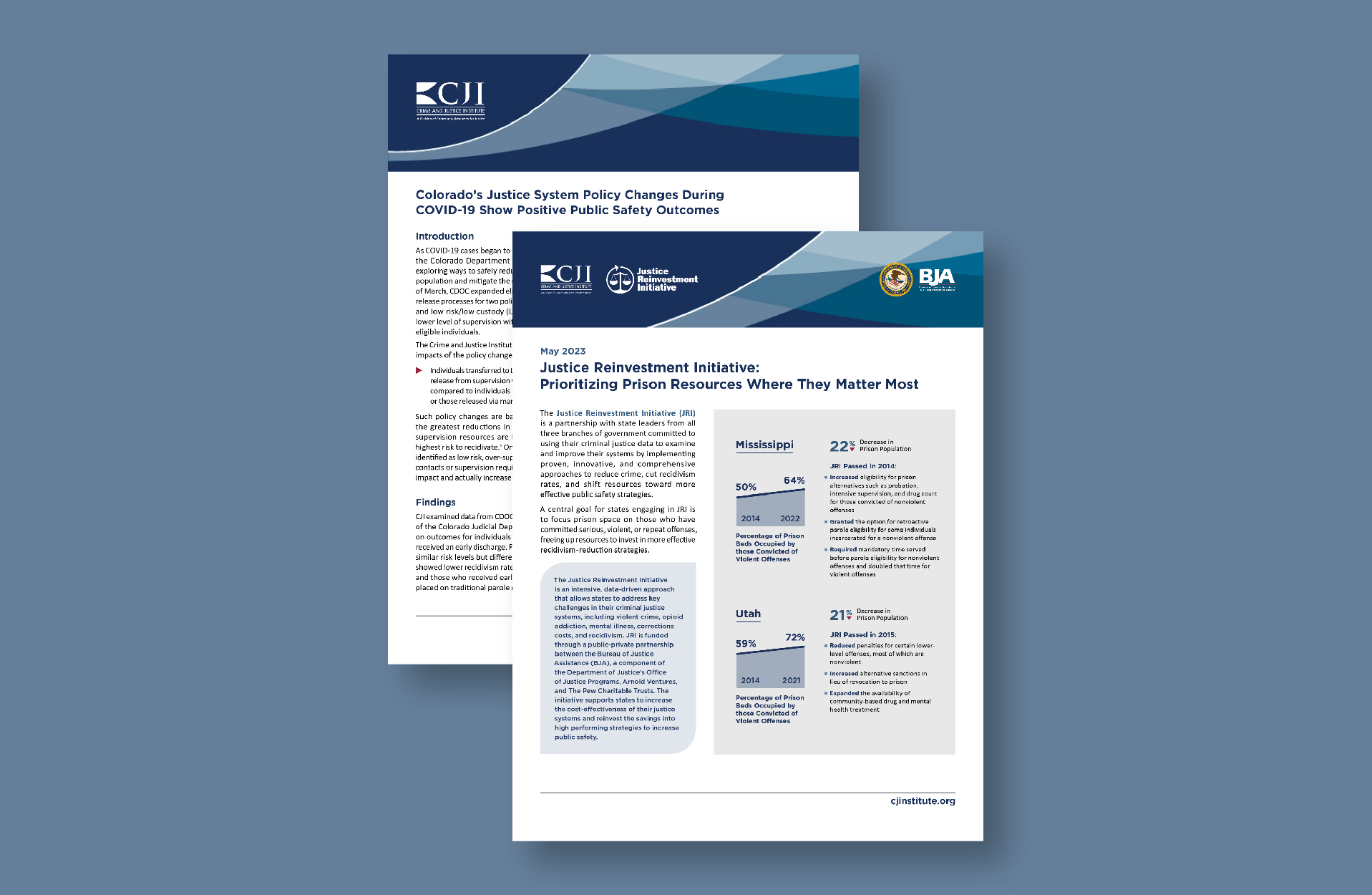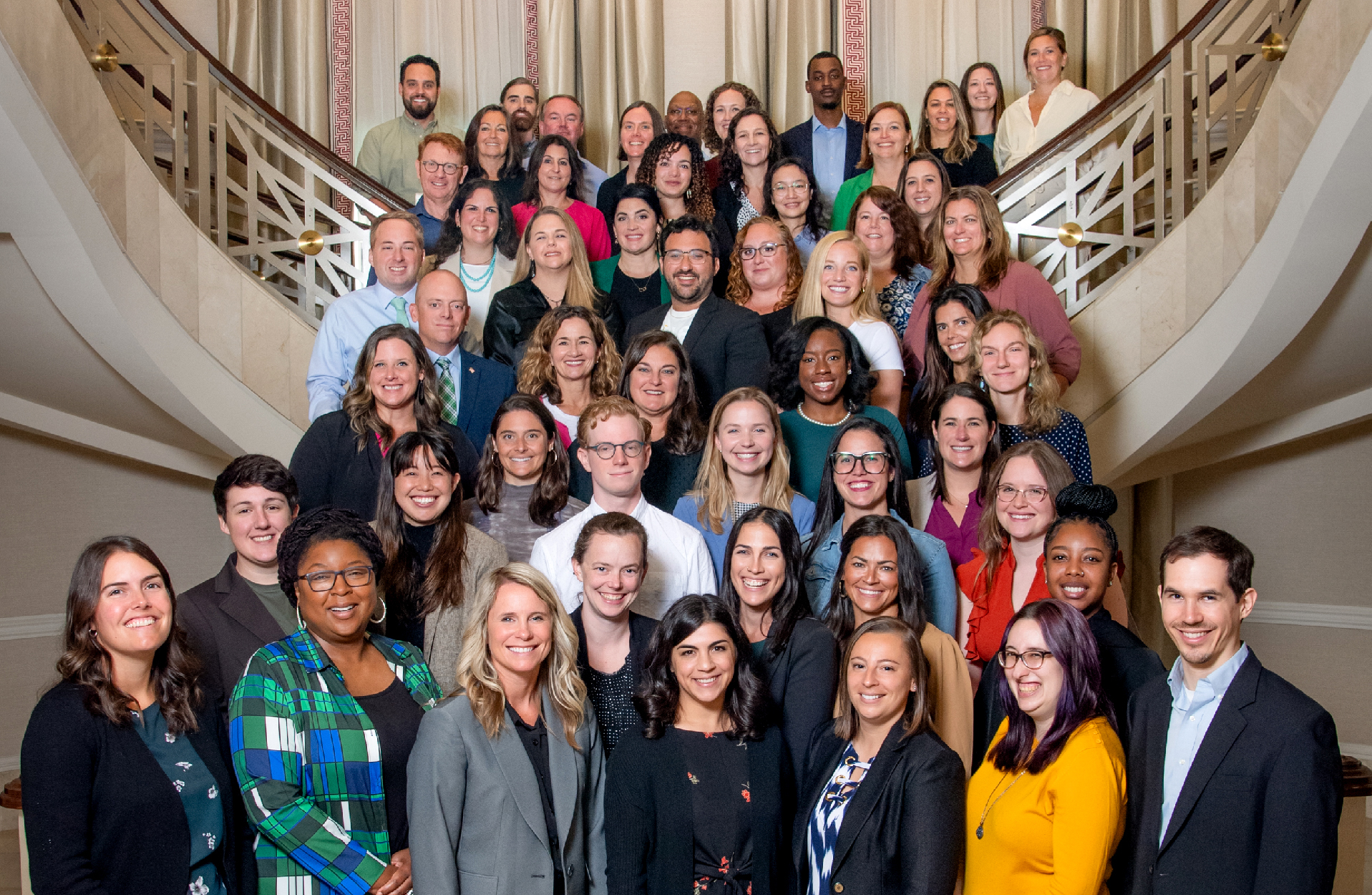We provide technical assistance to states interested in using a data-driven approach to design, enact, and implement system-level reforms through the Justice Reinvestment Initiative (JRI).

The goals of these reforms are:
- Improving public safety by reducing recidivism,
- Using criminal justice resources more effectively, and
- Achieving better rehabilitation outcomes
We have worked with more than a dozen states and numerous counties, many in partnership with the Bureau of Justice Assistance at the Department of Justice and The Pew Charitable Trusts as part of the Justice Reinvestment Initiative (JRI).
We have partnered with Pew’s Public Safety Performance Project (PSPP) since 2009 to help states advance fiscally sound, data-driven policies and practices in sentencing and corrections that protect public safety, hold individuals convicted of offenses accountable, and control corrections costs. Our team has had a significant role in the adoption of comprehensive reforms in the adult justice system in numerous states, including Tennessee, Nevada, Georgia, South Dakota, Utah, South Carolina, Mississippi, and Alaska. The reforms in most states have included significant changes to criminal sentencing policy.
Following passage of legislation, we provide several years of implementation technical assistance, funded by the Bureau of Justice Assistance. Our implementation sites have included Mississippi, Utah, Alaska, and Maryland.
Examples of successful JRI efforts include:
- Nevada: In 2018, Nevada’s prison population had increased 7 percent over the previous decade and was projected to climb another 9 percent by 2028, costing taxpayers an additional $770 million. In 2019, the state passed JRI legislation designed to reduce recidivism, slow prison population growth, and invest in behavioral health services in the community. The bill is projected to avert 63 percent of the estimated prison population growth over the next 10 years, saving taxpayers $543 million. CJI is currently assisting Nevada with Phase II implementation.
- Utah: In the decade leading up to its pursuing JRI in 2015, Utah’s prison population grew 18 percent and was on track to increase another 37 percent in the next 20 years at a cost of $500 million. Utah leaders responded by passing JRI legislation that prioritized expensive prison space for serious and violent offenders, strengthened probation and parole systems, and expanded offender reentry and treatment programs. As a result, Utah’s prison population fell 12 percent in just two years, with a 40 percent reduction in imprisonment for nonviolent
offenses. At the same time, successful probation completion increased 20 percent, improving public safety. - South Carolina: South Carolina’s correctional population tripled from 1985 to 2010 and was projected to grow another 13 percent by 2014. State leaders responded by passing JRI legislation that improved community supervision, prioritized prison space for more serious and violent offenders, and created mechanisms to monitor the reforms going forward. The state’s prison population has since declined 14 percent, averting almost $500 million in costs, and the crime rate has continued to decrease.
Click here to read an overview of the JRI process, goals, and outcomes.


